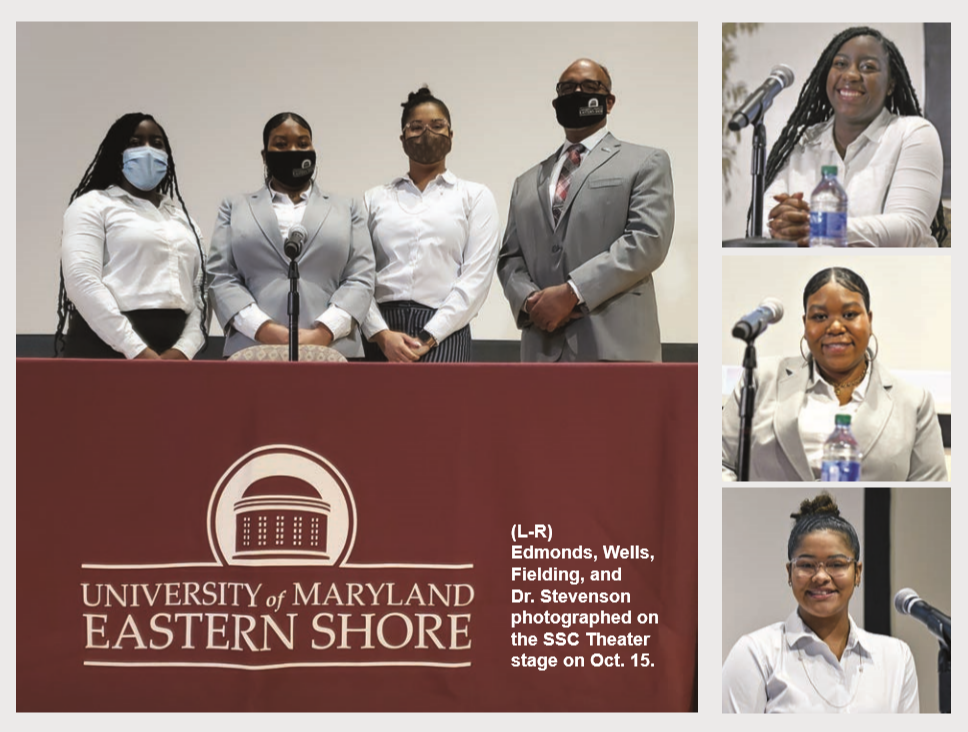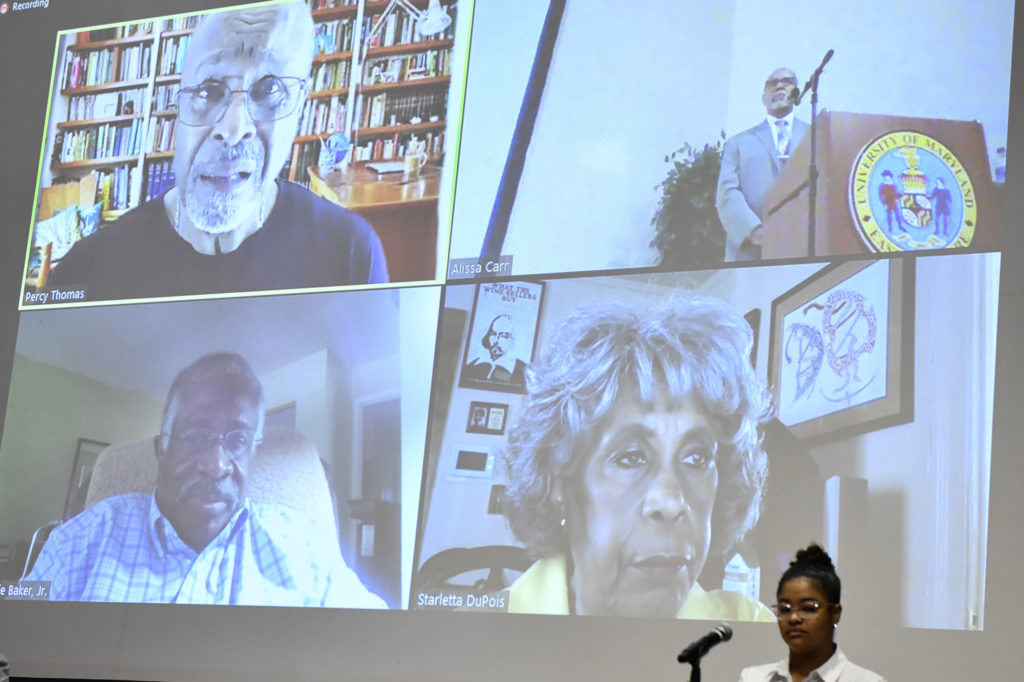
UMES alumni and students discuss “Racial Equity: Then and Now”
Thursday, November 19, 2020
As the COVID-19 pandemic changed our way of life, the pandemic of racial injustice has long infected this nation. In mid-October, Maryland State College alumni joined current University of Maryland Eastern Shore (UMES) students as participants in “Racial Equity: Then and Now,” a virtual hour-long discussion on the past experience and contributions of Maryland State students and the state of racial justice today.
Implementing social distancing guidelines, a limited number of guests were present in the Student Services Center Theater when the panelists responded to questions from the moderator, Dr. Marshall Stevenson Jr., dean of the School of Education Social Sciences and the Arts.
Panel members included Starletta DuPois (MSC ’68), Curtis Gentry (MSC ’66), Willie Baker (MSC ’65), Dr. Percy Thomas (MSC’65), Stephanie Edmonds (class of 2021, Semaj Fielding (class of 2022), and Ciani Wells (class of 2022).
Like many people in the United States and internationally, the feeling of “disbelief and anger” was apparent as Edmonds expressed her thoughts on the murders of George Floyd, Breonna Taylor and others, which fueled the unrest the world witnessed this past summer.
“It was a lot to take in. To be 22 years old, this has been going on since my mother was a child, and before that and before that,“ the Prince George’s County native said. “It begs the question. Is anything going to change? What can I do and what can we do to make that change?”

“My mind was enraged, but my heart was broken,” said Wells, a Philadelphia native who participated in protests this past summer. “I knew that because these people were silenced it would take us as a group to pick up where they left off and turned their cries into yells for equality and justice.”
Dr. Thomas linked his experience as a Maryland State student in the early 1960s to what’s happening today by describing the prevalent racism he faced and how others seem to be trying to return to the Jim Crow era.
“I think today we are beginning to see a more overt, coming out of the closet if you will, of putting Black people back in their place,” Thomas said. “I hope that our students recognize that their striving for excellence is not viewed by many people of a different racial hue as excellence at all. It is viewed as they are stepping out of their place.”
The panelists also addressed the importance of using your vote and your voice. “I’m delighted that you are engaged and involved. We need thousands of you to do that,” Thomas said.
Noting the geographical location of UMES in Princess Anne, Md., Thomas urged young people to “study your history and teach it to your children and young adults.” “You are in an abolitionist’s playground down there on the Eastern Shore (home of Frederick Douglass and Harriet Tubman),” he said.
Moving some in the audience to tears, the stirring discussion included mentions of horrific local history including the 1933 lynching of George Armwood and a cross burning on the then Maryland State’s campus. According to newspaper reports, Armwood was accused of a crime and abducted from the Princess Anne jail by a mob prior to being lynched and burned. Baker, Gentry, and Thomas were put into the same jail as students protesting injustice in the 1960s.
In discussing her Maryland State experience, DuPois, a Tony-nominated theater and film actress, shared the impact of the cross burning and how male students were willing to protect the women on campus.
“To see the smoldering ashes and the flames from this cross struck something in me that I knew whatever it would take for me to be a part of a change. I was willing to die in order to live,” DuPois said. “Fellas formed a human chain around the women’s dormitory. Other things occurred that night.”
In the midst of the injustices Maryland State alumni shared, each was clear about their experiences and the university’s role in their lives.
“Four of the greatest years of my life that I would not ever wanted to have missed,” said Gentry, a retired NFL athlete who became emotional while expressing his gratitude for his experience at the historically Black college.
By Tahja Cropper
This article was published in the November 2020 edition of The Key newsletter.

